Mechanical Keyboard Tuning Guide: How to Make Your Mechanical Keyboard Feel and Sound Its Best
Introduction
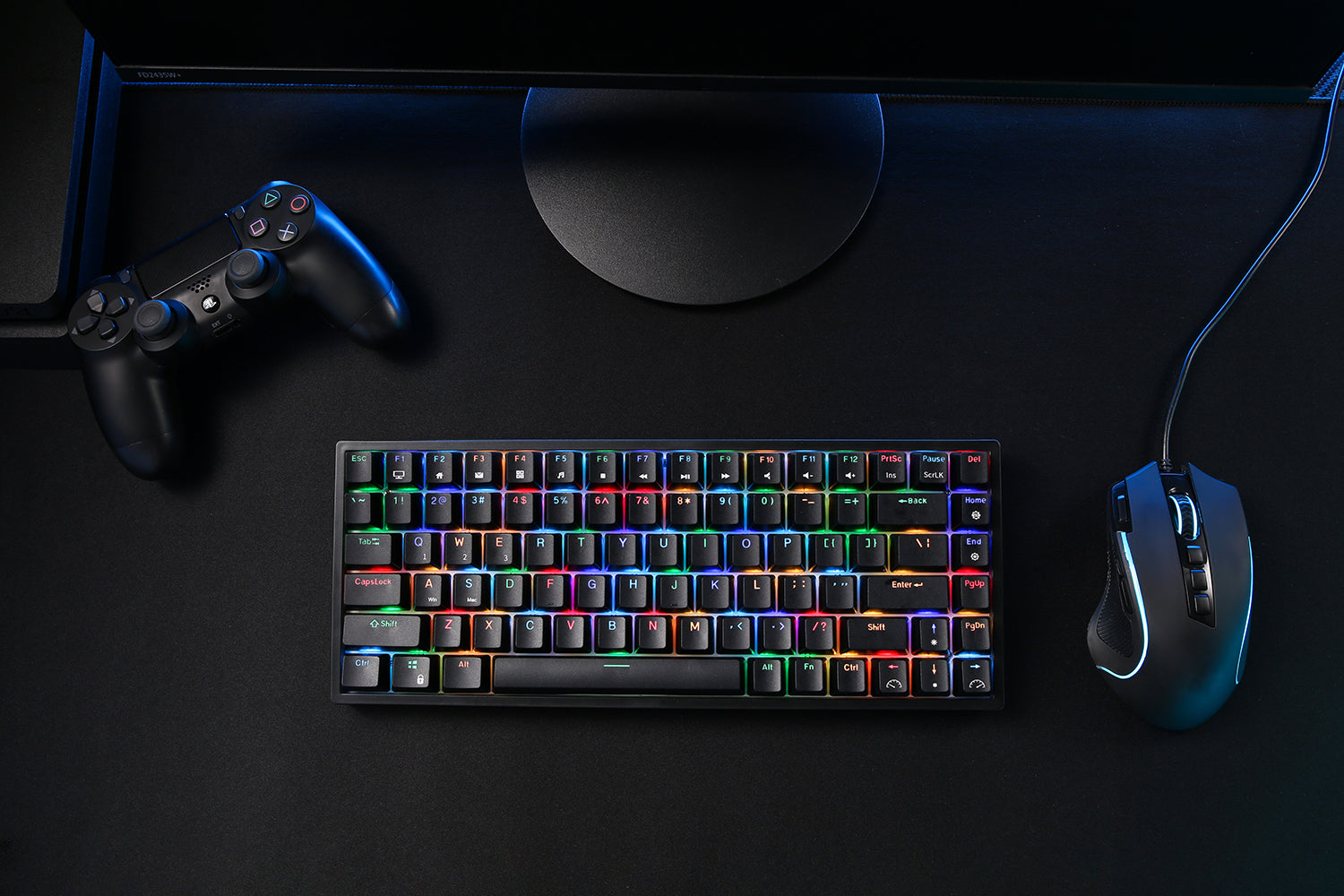
You've heard about mechanical keyboard modding, but don' t know where to get started? No worries. This extensive guide will discover the intricate art of mechanical keyboard tuning and customization. From the basics of keycaps and switches to advanced modifications like lubing and soundproofing, we're about to begin a journey to transform your typing experience. So whether you have or don't have money, be a noob or an expert, this guide covers everything you need to make your mechanical keyboard better and customized to your needs, enhancing your overall keyboard-using experience. Now, fasten your seatbelts as we delve into the captivating world of mechanical keyboard enthusiasts.
Table of Contents:
- Introduction
- What Does a Modded Keyboard Mean?
- Glossary Of Important Terms
- Reasons To Modify Mechanical Keyboards
- Should You Modify Your Mechanical Keyboard?
- Can You Mod a Regular Keyboard?
- How To Modify Mechanical Keyboards?
- Conclusion
- Frequently Asked Questions
What does a Modded Keyboard Mean?
Before we delve into the complexities of mechanical keyboard tuning, let's decipher the term "modded keyboard." Modding, short for modification, refers to altering your keyboard's components to enhance its performance, aesthetics, and user experience.
For mechanical keyboard enthusiasts, modding is not just a hobby; it's a passion that allows them to craft the perfect typing tool tailored to their unique preferences.
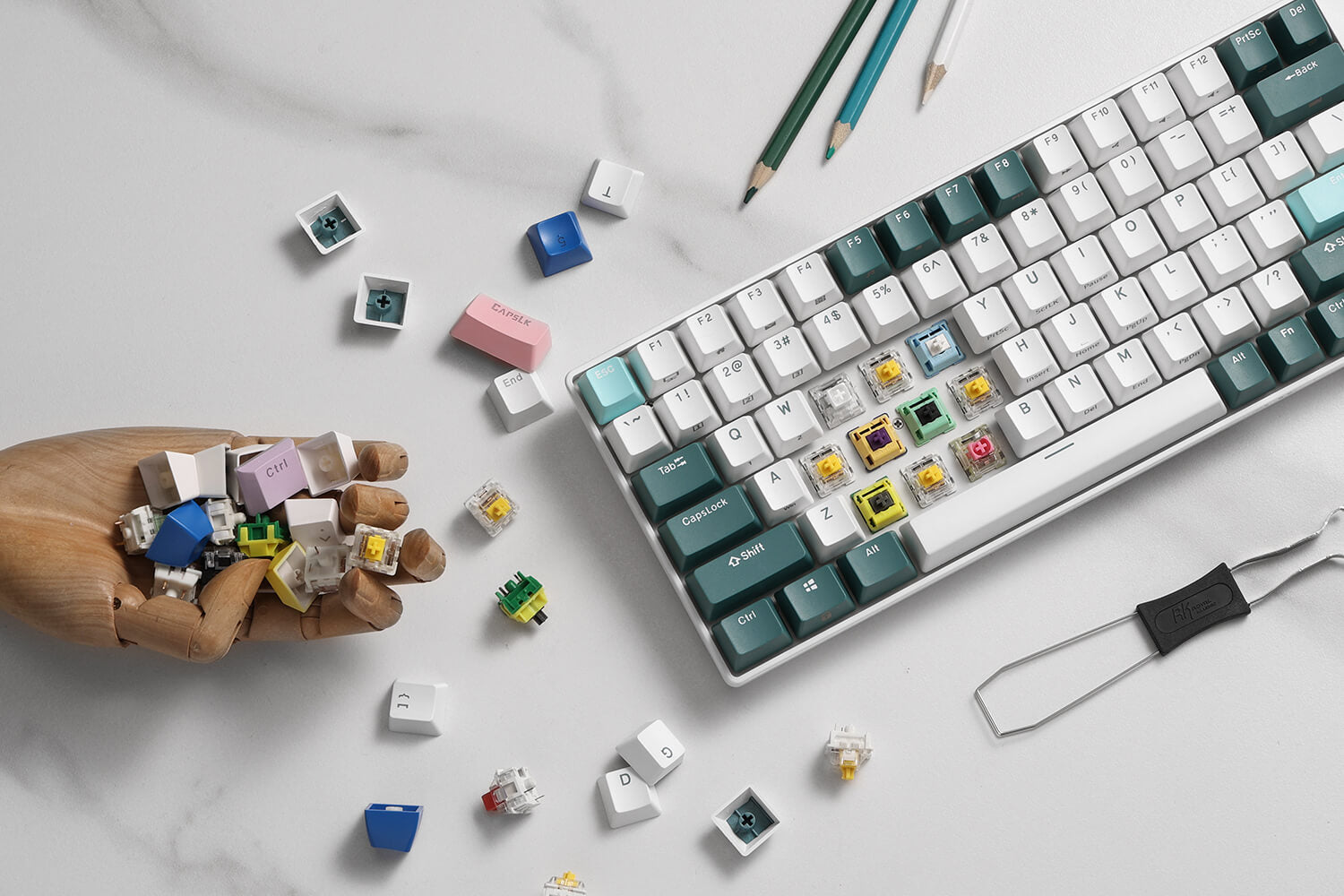
Glossary Of Important Terms
Let's establish a common ground by exploring key terms essential for understanding mechanical keyboard modifications:
- Keycaps: Keycaps are the removable coverings for individual keys on a keyboard, serving both functional and aesthetic purposes, with options for customization.
- Switches: The heart of the "Mechanical Keyboard." It is beneath keycaps and causes individual mechanisms beneath the keycaps that register keystrokes.
- Hot-swap: The sockets each switch slots into on a mechanical keyboard that allow a switch to be removed and reinstalled without the need to solder. They can also be swapped while the keyboard is still plugged in and on safely.
- Linear: The most popular switch type with a smooth up and down motion and no extra feedback until you fully press the key.
- Tactile:Featuring a noticeable bump at some point during keypress, which can be at the beginning, end, or somewhere in between, but the bump doesn't indicate key actuation.
- Clicky: Clicky switches produce both a physical bump and an audible "click" sound at some point during the keypress, but neither the bump nor the click signal key actuation.
- Soundproofing: Techniques to minimize keyboard noise, creating a quieter environment.
- USB Cable:A USB cable is a common type of cable used for connecting various electronic devices to computers or other compatible devices.
- Quieter :"quieter" is the comparative form of the adjective "quiet." It is used to compare the level of quietness or noise between two or more things. When something is described as "quieter," it means it produces less noise or is less noisy compared to something else.
- Thock :A low-pitched typing sound, sometimes described as “deep.”
- Clack:The opposite of thock, used to describe a high-pitched sound while typing.
- Ping:Refers to the metallic sound that can occur when you press down on most standard keyboard switches, and this issue can often be resolved by applying lubrication to the internal spring of the switch.
- Lubricant :Synthetic grease used in switches and stabilizers. This can be a dielectric grease (for stabilizers) or a thinner grease. Popular choices are Krytox 205g0 and thicker lube like Glorious’ lubes. Dielectric grease is also a popular lubricant for stabilizers.
- Stabilizers :Stabilizers are a pair of dummy switches placed beneath larger buttons connected by cables. This component keeps the keys balanced and prevents the keycap from tilting to one side or the other.
Reasons To Modify Mechanical Keyboards
Why would you want to modify your mechanical keyboard? Let's explore some compelling reasons:
Customization
Tailor your keyboard's appearance and feel that perfectly match your personality.
Enhanced Typing Experience
Modding can create a more comfortable and satisfying typing sensation.
Reduced Noise
Implementing soundproofing techniques can significantly decrease typing noise.
Improved Aesthetics
Upgraded keycaps, switches, and cables can enhance your keyboard's visual appeal.
Modifying your keyboard can be fun and exciting to improved typing experience. And of course it has to be adjusted to your budget. Modifying your keyboard allows you to select components that provide the most comfortable and satisfying typing experience for you. Some people have a unique preferences when it comes to key switches, keycaps, stabilizer, keyboard sound-proof and custom USB cable.
Should You Modify Your Mechanical Keyboard?
The decision to modify your mechanical keyboard hinges on your preferences and aspirations. Yet, there are important considerations and risks to ponder:
Warranty
Modifying your mechanical keyboard will oftentimes result in losing your warranty especially when modifying a pre-built keyboard. Reason being, the manufacturers have no way to tell if you know what you’re doing and that you didn’t damage your PCB or something when doing mods to your board that could accidentally damage it. Since it’s outside of the manufacturer’s intended use case, you lose your warranty privileges.
Skill Level
Some modifications demand technical expertise. Evaluate your proficiency before attempting complex mods. Also, if you notice your keyboard switches do not come out of the board and don’t feature hotswap sockets on the PCB, do NOT try to force them out. You won’t be able to modify this keyboard to the same degree since the switches are soldered into the PCB and you will risk breaking the keyboard. If you’re handy with a soldering iron you can continue to brave this risky path at your own discretion.
Budget
Custom components can be pricey. Set a budget to avoid overspending on your modding journey.
Click here to find the RK keyboard that better fits your budget.
Personal Preference
Experiment and tailor your mods according to your liking. If you're looking to improve the typing experience, aesthetics, or functionality of your keyboard, and you're comfortable with the thinker a good idea, modifications can be a great way to personalize your setup. However, if you're happy with your keyboard as it is, there's no need to modify it.
Can You Mod a Regular Keyboard?
It's important to note that regular keyboards typically lack the mechanical components and extensive customization options that mechanical keyboards offer. As a result, the level of modification you can make is limited and some changes may require technical expertise or DIY skills.
If you're looking for a more extensive and flexible customization experience, consider investing in a mechanical keyboard, as they are designed with modifiability in mind and offer more options for switches, keycaps, and other modify items.
Click here to find the mechanical keyboard that suits you.
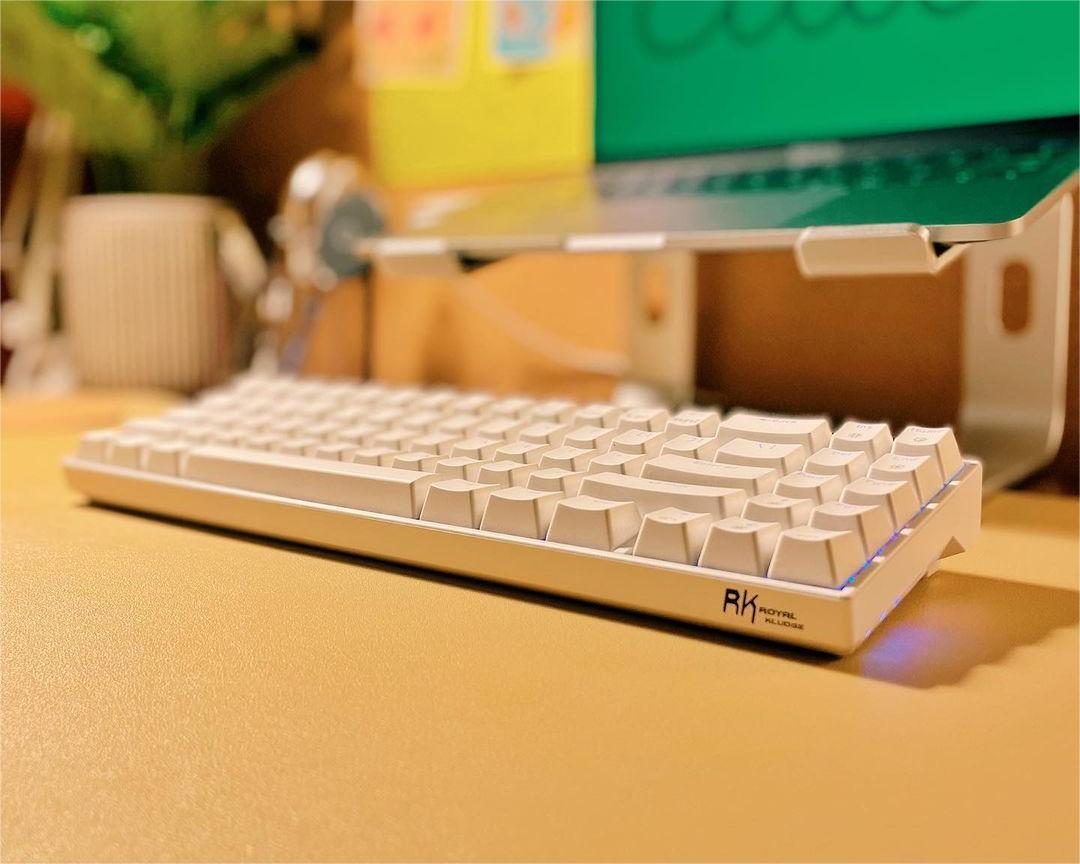
credit to: @heykathstudio
How to Modify Mechanical Keyboards?
Now that we understand the basics let's explore the core modifications that can transform your mechanical keyboard into a dream typing machine.
Upgrade Your Keycaps
Keycaps are the removable, individual covers that sit atop the switches on a mechanical keyboard. They are the part of the keyboard you press when typing. Keycaps are essential not only for the functionality of a keyboard but also for its aesthetics and customization options. They come in various shapes, profiles, materials, and designs, making them a crucial component for both the typing experience and personalization of your keyboard.
Upgrade your Switches
A mechanical keyboard has mechanical key switches. Sound is an important factor to consider when comparing switches. It is different from other aspects like how the keys feel, the force needed to press them, and how far they travel.
Check out the Comprehensive Guide to Mechanical Keyboard Switches from RKGAMING here.
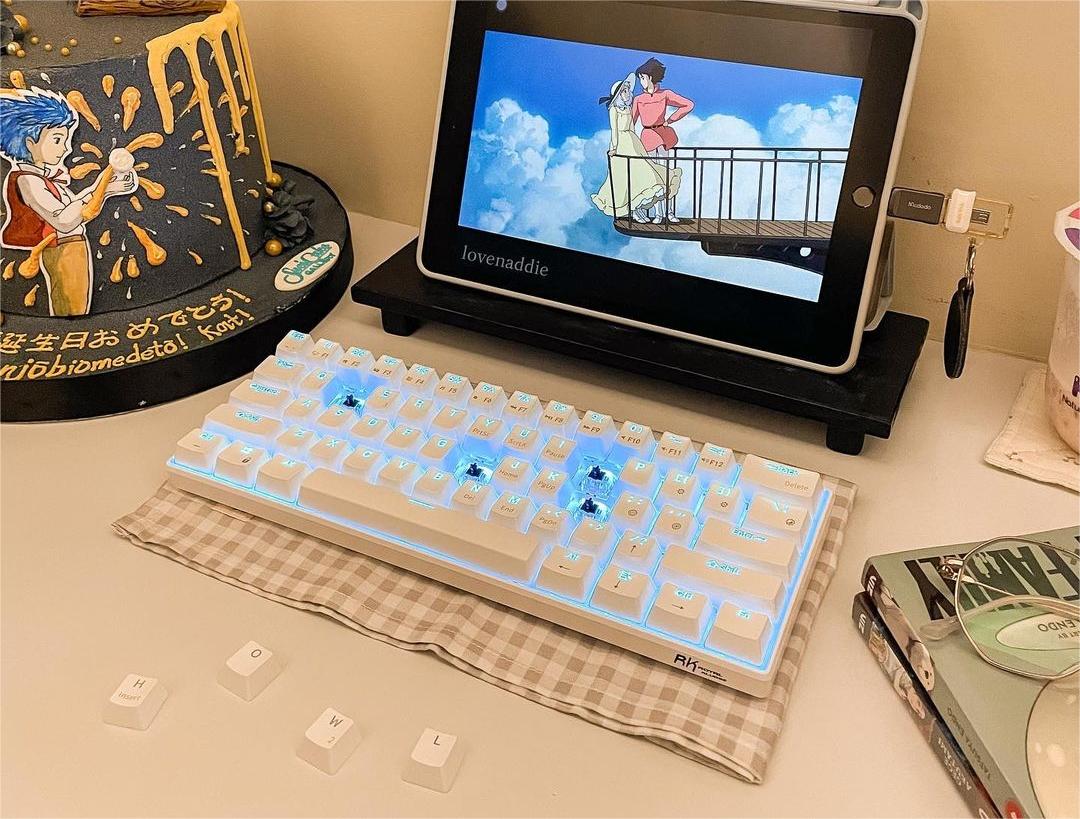
credit to: @lovenaddie
Lube Your Switches
Lubing your switches enhances their smoothness and reduces friction, resulting in a more refined keystroke feel. However, this process requires meticulous attention and a steady hand. If you are uncomfortable with DIY lubing, purchase pre-lubed switches for a hassle-free experience.
Stabilizer Modifications
Stabilizers play an essential role in the functionality of larger keys like the spacebar, enter, and shift keys. Modifying stabilizers can eliminate rattling and create a more enjoyable typing experience.
Band Aid modifications, lubricants, and clips are three important steps to strengthen the stabilizers on your keyboard.
Band-Aid Mod
Cut pieces of band-aid adhesive and apply them to the PCB where the stabilizers hit. This reduces the impact, producing a satisfying "thock" sound.
Lube the Stabilizers
Apply lubricant to the moving parts of the stabilizers, ensuring smooth movement without friction.
Clip the Stabilizers
Remove the extra bottom part of the stabilizer, reducing unnecessary movement and enhancing stability.
Soundproof Your Mechanical Keyboard
Sound proofing a mechanical keyboard can be a bit challenging because the noise primarily comes from the mechanical switches themselves when they bottom out or when the keycaps hit the switch housing.
Do you want your keyboard to sound quieter than you would like? However, there are the ways you can make a mechanical keyboard quieter:
- Press the buttons carefully:If you have certain types of tactile switches, you can prevent any noise by only pressing the button enough for the press to be audible but not hard enough to trigger a clicking sound.
- Use a desk mat : If you have touch or linear keys, but they're still too loud, a soft desk mat can absorb some of the sound.
- Add a dampener foam:Take apart your keyboard, and check to see if there’s space to install a thin foam sheet in the bottom. If there is, the foam will help soak up some of the clicking noise from your keys.
- Install or replace your o-rings:Pop off your keycaps and check for o-rings on the switch stems. If there aren't any o-rings, install some. If there are old o-rings present, replace them.
Get a Custom USB Cable
Definitely check out your USB cables. The custom cables are usually offered in a coiled shape or straight, depending on what aesthetic you want to go with. The coiled cables tend to be more expensive and over-time the coil will start to unravel and look sloppy, but they look super cool. So, you can replace them with custom USB cables that you wanted.
Conclusion
Using a combination of mods is one of the best ways to get the most out of your keyboard. Expensive DIY kits often come with mods built into the design, so you don't have to buy and consider them first. If you're on a budget and building your first custom keyboard, or just want to improve your current typing experience, it's within your grasp with just a little time and effort, so don't be afraid to explore and discover what suits your preferences best. Be warned: once you get used to the modified typing experience, it may be hard to go back!
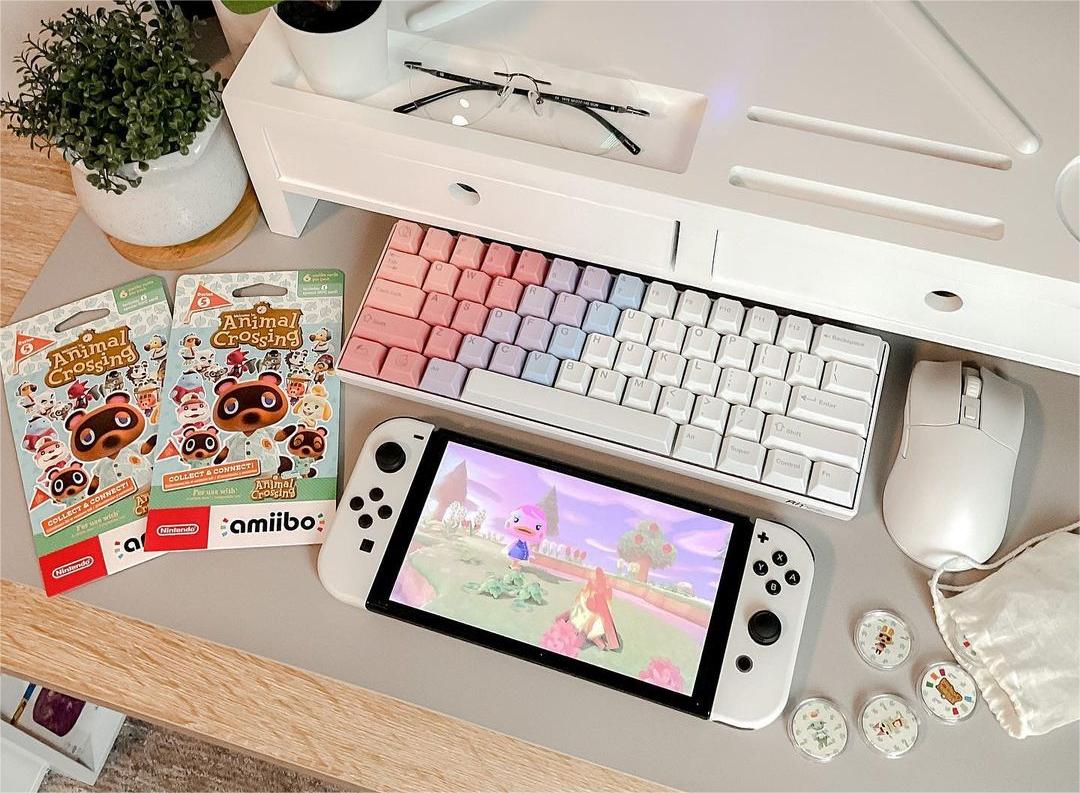
credit to: @cosychey
FAQs
What mods should I use on my keyboard?
The choice of mods depends on your goals. Keycap upgrades, switch replacements, and stabilizer modifications are popular choices. Experiment to find the mods that enhance your typing experience..
What is the most essential mod for keyboards?
Keycap upgrades and switch replacements are among the most impactful mods, as they directly influence the typing feel and sound.
What does modding a keyboard do?
Modding allows you to customize your keyboard's appearance, feel, and sound. It's a way to tailor your typing experience to your preferences.
How do I mod keyboard sounds?
You can mod keyboard sounds using techniques like lubing switches, applying dampening materials, or using O-rings to reduce keypress noise.
How Do I Make My Keyboard Thock?
Achieving a satisfying "thock" sound often involves soundproofing techniques such as applying dampening foam, lubing switches, and stabilizers.
How do I make my keyboard clicky?
To make your keyboard clicky, you can choose clicky switches like Cherry MX Blue or apply clicky keycaps, which produce an audible click when pressed.
How do I make my keyboard quieter?
Reducing keyboard noise can be achieved through soundproofing methods like adding dampening foam, using O-rings, or choosing quieter switches.
How do I mod switches on my keyboard?
Modding switches involves disassembling them, applying lubricant, and potentially adding switch films for improved performance. The process can vary depending on the switch type.
How can I make my keyboard sound better for free?
To improve your keyboard's sound without spending, consider placing it on a desk mat to reduce vibrations and dampening the keys using materials like O-rings.
Is it challenging to modify a mechanical keyboard?
The difficulty of modification varies based on the specific mods you choose. Some mods, like keycap replacements, are beginner-friendly, while others, like switch soldering, require technical expertise.

